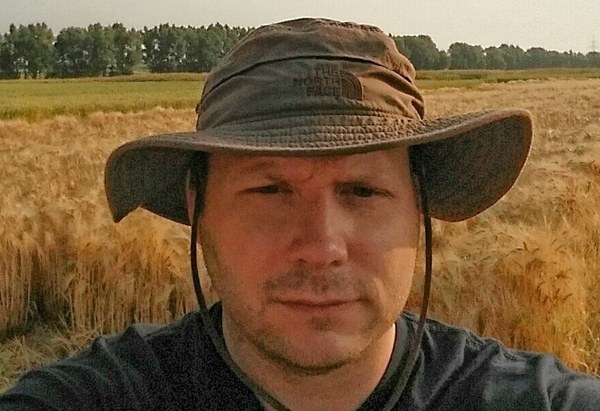At the Institute of Bio- and Geosciences, Plant Sciences (IBG-2) at Forschungszentrum Jülich, we work on finding sustainable ways to improve how plants grow—supporting the future of farming and the environment. Our main focus areas include studying how plants respond to their surroundings, improving how we measure plant growth, and finding new ways to use alternative plant materials. By combining tools from biology, ecology, and technology, we aim to support a greener economy and help agriculture adapt to climate change. You can learn more at FZ Jülich IBG-2.
My research explores how crop roots grow and how they help plants take up water and nutrients. I’m especially interested in how the shape and structure of roots affect plant health and productivity. We also look for new root traits that can help boost crop yields—both in temperate and tropical regions. Much of this research takes place in fields across Europe, Southeast Asia, and South America. I also lead the development of innovative tools and technologies that help us better measure and understand plant growth in field conditions.
One of our latest projects focuses on a plant called Asparagus racemosus, also known as Shatavari or Rak Sam Sib. This plant is rich in natural compounds called saponins, which have many uses in medicine and industry. We’re exploring how this crop can play a role in the sustainable bioeconomy.
I 'm also leading the PiñaFibre Project, an international collaboration that aims to turn pineapple leaves—a farming byproduct—into eco-friendly textiles and materials. We're working with partners in Thailand, Colombia, and Germany to create value from agricultural waste and support more sustainable industries.
Another project I coordinate is called CASSAVASTORE. Here, we study the root systems of over 54,000 cassava plants and link that information with the DNA of 600 different cassava varieties. By doing so, we hope to discover the genetic traits that make cassava more productive and resilient. We've already sequenced these varieties and will also look at how their genes behave during different stages of root growth.
Together, these efforts aim to create more resilient crops, reduce waste, and promote sustainable development.
Third party funding:
2025 POF Seed Funding "Rak Sam Sib" Projekt - Plantation of Asparagus racemosus Willd. in salinity soil areas, dose-response curve for phytochemical profile, extraction and anti-fungal properties
2023- 2026 EU MSCA Doctoral Networks 2021 (HORIZON-MSCA-2021-DN-01): ROOTED,
2023 - 2028, expert EU HORIZON-CL6-2021-BIODIV-01-13: Root2Resilience: Root phenotyping and genetic improvement for rotational crops resilient to environmental change (Root2Res);
2022 -2027, leader of alternative crops BMBF – Bioeconomy International: Unlocking the potential of dual-purpose crop: utilization of pineapple leaf fibres for bio-based textiles (PiñaFibre),
2022 – 2025, project coordinator EU-ASEAN Joint Funding Scheme: model-based decision tool for irrigation of cassava irrigation (DIRECTION),
2020 – 2024, senior scientist BMBF – Bioeconomy International: Utilization of genetic and phenotypic variation of storage root development of Cassava (Manihot esculenta Crantz) to improve an important bio-economy crop (CASSAVASTORE),
2017 – 2021, project coordinator BMBF - GlobE: Improving food security in Africa through increased system productivity of biomass-based value webs (Biomassweb), 2013 – 2018, work package leader

